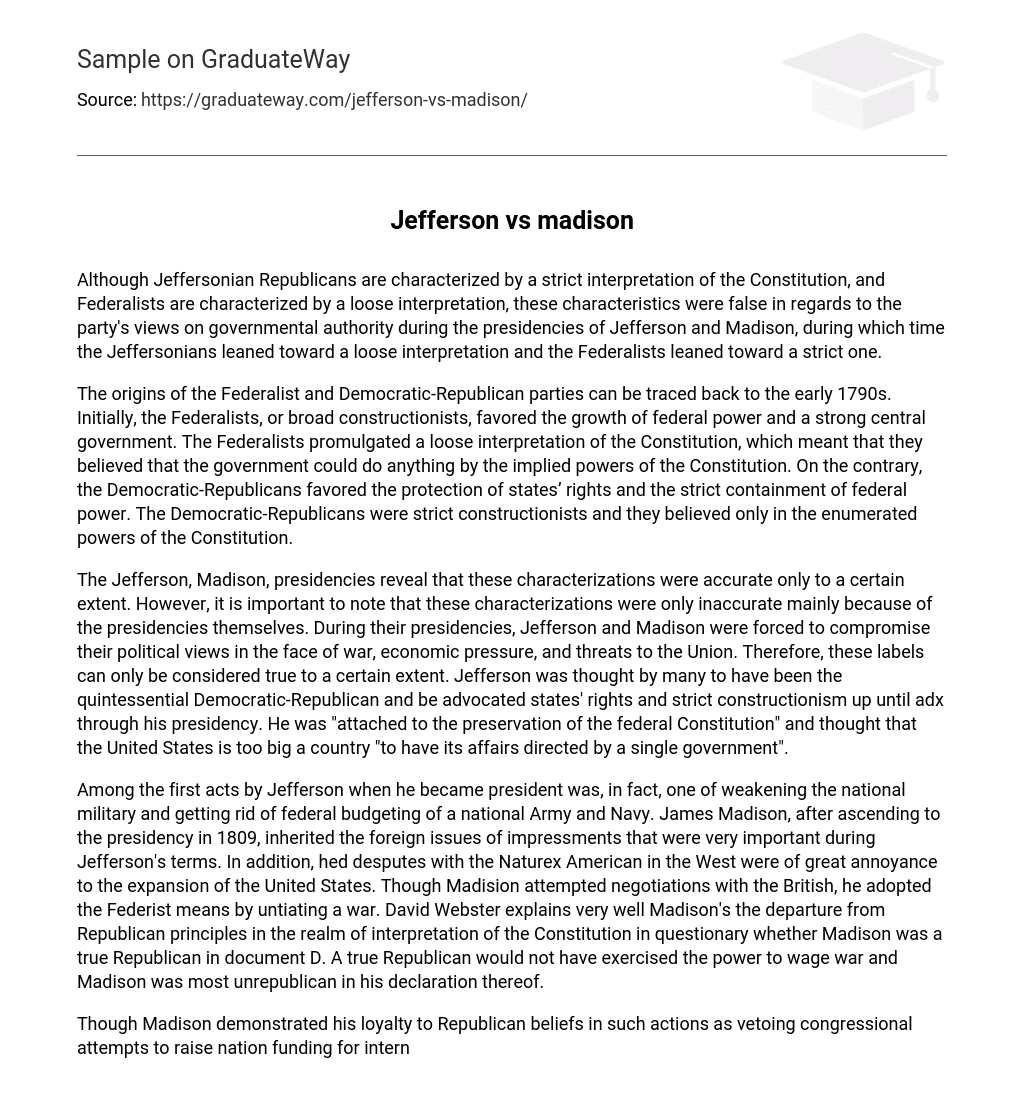Although Jeffersonian Republicans are characterized by a strict interpretation of the Constitution, and Federalists are characterized by a loose interpretation, these characteristics were false in regards to the party’s views on governmental authority during the presidencies of Jefferson and Madison, during which time the Jeffersonians leaned toward a loose interpretation and the Federalists leaned toward a strict one.
The origins of the Federalist and Democratic-Republican parties can be traced back to the early 1790s. Initially, the Federalists, or broad constructionists, favored the growth of federal power and a strong central government. The Federalists promulgated a loose interpretation of the Constitution, which meant that they believed that the government could do anything by the implied powers of the Constitution. On the contrary, the Democratic-Republicans favored the protection of states’ rights and the strict containment of federal power. The Democratic-Republicans were strict constructionists and they believed only in the enumerated powers of the Constitution.
The Jefferson, Madison, presidencies reveal that these characterizations were accurate only to a certain extent. However, it is important to note that these characterizations were only inaccurate mainly because of the presidencies themselves. During their presidencies, Jefferson and Madison were forced to compromise their political views in the face of war, economic pressure, and threats to the Union. Therefore, these labels can only be considered true to a certain extent. Jefferson was thought by many to have been the quintessential Democratic-Republican and be advocated states’ rights and strict constructionism up until adx through his presidency. He was “attached to the preservation of the federal Constitution” and thought that the United States is too big a country “to have its affairs directed by a single government”.
Among the first acts by Jefferson when he became president was, in fact, one of weakening the national military and getting rid of federal budgeting of a national Army and Navy. James Madison, after ascending to the presidency in 1809, inherited the foreign issues of impressments that were very important during Jefferson’s terms. In addition, hed desputes with the Naturex American in the West were of great annoyance to the expansion of the United States. Though Madision attempted negotiations with the British, he adopted the Federist means by untiating a war. David Webster explains very well Madison’s the departure from Republican principles in the realm of interpretation of the Constitution in questionary whether Madison was a true Republican in document D. A true Republican would not have exercised the power to wage war and Madison was most unrepublican in his declaration thereof.
Though Madison demonstrated his loyalty to Republican beliefs in such actions as vetoing congressional attempts to raise nation funding for internal improvements, in addition to letters the charter of Alexander Hamilton’s First National Bank to expirex, his administration’s declaration of the War of 1812 led to a liviscon amey Republicansx. John Randolph clearly describes his grievances with the state of the Republican Factsx in “We have another proof that the present government have renounced the true Republican principles of Jefferson’s administration.”





